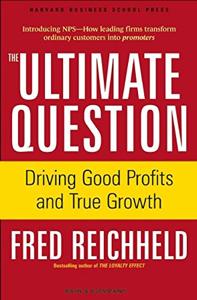
Want to learn the ideas in Good Profit better than ever? Read the world’s #1 book summary of Good Profit by Fred Reichheld here.
Read a brief 1-Page Summary or watch video summaries curated by our expert team. Note: this book guide is not affiliated with or endorsed by the publisher or author, and we always encourage you to purchase and read the full book.
Video Summaries of Good Profit
We’ve scoured the Internet for the very best videos on Good Profit, from high-quality videos summaries to interviews or commentary by Fred Reichheld.
1-Page Summary of Good Profit
Overview
This book is about how the management strategies of Charles G. Koch, CEO of Koch Industries, Inc., have led to success for his company. It includes advice on how others can implement those strategies and details some failures that the company has had along the way.
Good profits come from companies that provide the best goods and services at reasonable prices, while also helping people improve their lives. To be profitable in this way, a company must offer innovative products that are sometimes unexpected to customers. These products can be created by creative destruction or by making good choices for the long-term benefit of all parties involved (the businesses, customers, and society).
Koch Industries has developed a management framework to help them be successful, called Market-Based Management. It helps businesses identify their vision and goals for the future as well as figure out how to achieve those goals. The five dimensions of MBM are vision, virtue and talent, knowledge processes, decision rights, and incentives.
Key Takeaways
Adversity is the key to success. Corporate welfare in the form of handouts and tax subsidies obscures the free market, which is negative for the economy. The customer should be treated fairly by companies who want to succeed.
A company’s vision and mission statement is the cornerstone of good management. A company must hire people with good character who share the same values as their business. This is more important than hiring someone who has a specific job title or set of skills. Strong communication is essential for success, so companies should encourage open dialogue between managers and employees to foster honesty and accountability in the workplace.
Incentives are essential to motivate people. They should be both long-term and short-term, as well as financial and nonfinancial.
To work, MBM needs to be adopted wholesale.
Key Takeaway 1: Adversity is the key to success.
Fred Koch taught Charles Koch that failure builds character. When a pipeline burst in Texas and killed two teenagers, Charles learned from the incident to be more careful with government regulations and pipeline maintenance.
Failure is important in business because most startups fail, and entrepreneurs need to learn how to harness the power of failure. Failure can lead to success if you recognize it early on and use it as a learning experience. McArdle’s research shows that this skill is uniquely American; other countries are more tolerant of failure, but they don’t necessarily make better use of it.
Koch believes that failure is important, but the risks need to be recognized so that they are on the correct scale. He also states that it is good for business and personal growth, and it does not penalize employees for taking risks.
Key Takeaway 2: Corporate welfare in the forms of handouts and tax subsidies obscures the free market and is negative for the economy.
Companies should not be bailed out by the government because it changes the relationship that a company has with its customers. For example, Solyndra took money from the government for green power initiatives and then defaulted on their loan. This was bad news for both taxpayers as well as future clean energy projects. Instead of bailing out companies, we should allow them to innovate new solutions in order to satisfy customers while also making better use of resources in order to create profit.





